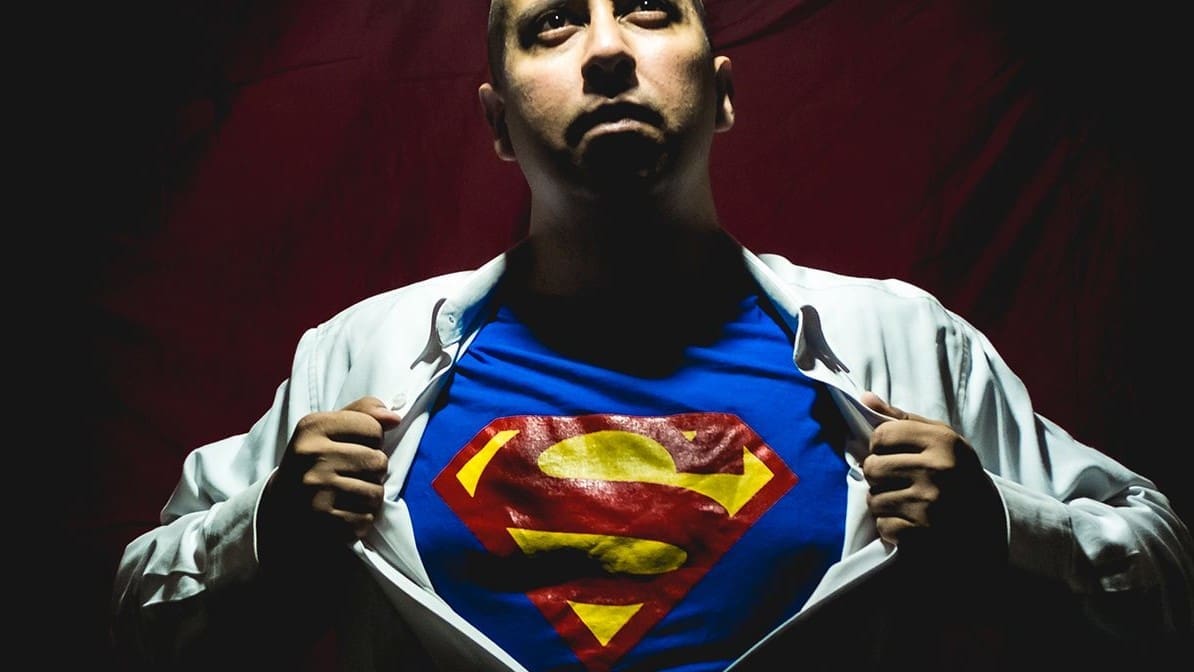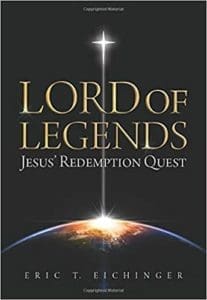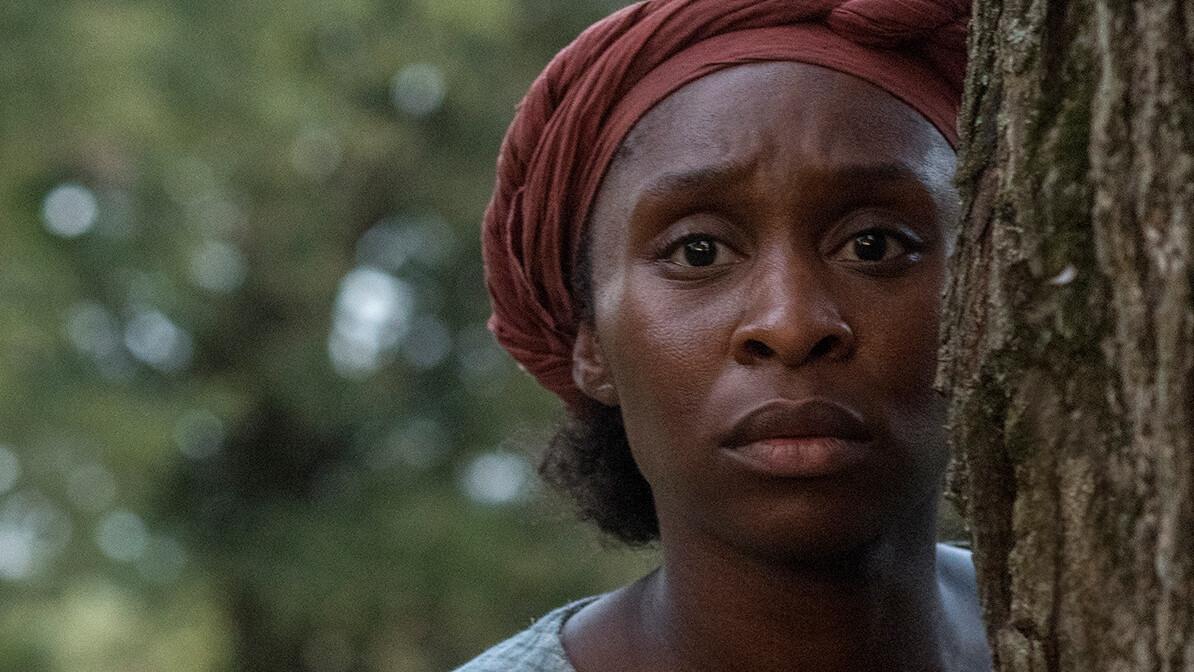- Home
- Entertainment
- Eric Eichinger and the Lord of Legands – The Real Superhero (Part 1)

Eric Eichinger and the Lord of Legands – The Real Superhero (Part 1)
 John Farrell: Could you please tell me a little bit about your book, Lord of Legends?
John Farrell: Could you please tell me a little bit about your book, Lord of Legends?
Eric Eichinger: So, I’m just really excited about this book because I’ve collected comic books for a long time, and I’ve really enjoyed watching movies and television shows and reading books and all sorts of things. Whether it’s James Bond, Indiana Jones, or Marvel or DC, or what have you, we all love them.
I started to recognize when I got older and studying theology there’s a particular pattern of the hero’s journey that most every hero will go on. And I started to recognize that this is really Christ’s glory story of how He redeems the world. This whole idea of one day this Chosen One is going to come from afar and save the world and these big concepts. So, I recognized this is really Jesus’ story. And I wanted to write a book that was able to point people from the secular toward a conversation about the sacred Christ and open that doorway of conversation to share Jesus.
JF: What is the overall message you hope people take from it and why is that message so important today from a cultural perspective?
Eric: Sometimes people can dismiss the secular world entirely. Like the Christian camp. It’s like we wanna have nothing to do with it or make it the forbidden fruit. We want to be able to use it as a vehicle to harness conversation and to talk with people and articulate what we’re observing in culture, but then be able to recognize how it does in fact connect to Jesus or point to Christ and His promise. It opens a doorway for so many conversations.
So, every chapter in Lord of Legends is going to outline one particular sequence of the hero’s journey. And I will draw from the secular, whether it’s a Batman reference or an Indiana Jones reference or a Star Wars reference, or even something like Narnia or Lord of the Rings. I will then transition that into this is where Jesus is doing that particular step and sequence in his redemptive process for humanity and take them into the scripture.
It’s a really fun, rewarding book to write. And I think it’s gonna be an excellent one to read for a variety of readers.
Comic Books and Olympic Hero
JF: What or who inspired you to write Lord of Legends?
Eric: I was more of a visual reader growing up. So, a lot of the books that were assigned in school just didn’t jive with me. Comic books kind of saved me. I grew to really appreciate the heroic stories. They lend themselves easily to television and movies and everything. And now we’re seeing a windfall of success with all the superheroes. All the actors wanna be in them.
I just really enjoyed reading about stories and then telling stories and studying them. I was a theater major at Michigan State. So, just conveying stories to people. And of course, Jesus does this all the time with the parables. He puts things into story format.
When we confess our creeds in the church – any of the three ecumenical creeds – it tells the story of the Father who sends the Son Jesus, who then sends the Holy Spirit and this whole redemptive process. He reveals Himself in His identity by story.
I think it’s fun to be able to show how Jesus connects, even in these secular and hero stories that we have, throughout all the different streams of media like film, television, books, or what have you, and for people to recognize that this really points back to Christ.
JF: How did Eric Liddell serve as an inspiration for your book?
Eric: When I was about seven years old – it’s funny because my youngest son is turning seven tomorrow – I saw Chariots of Fire for the first time. Chariots of Fire was just this incredible moment in my life – a real touchstone – where I’d never seen a Christian hero on screen before. He’s just running races, but it’s the Olympics, and he stands for his faith.
People are probably familiar with the Chariots of Fire story, but if not, shame on you. Watch it. It got nominated for like seven or eight Oscars and won like four or five I think that year.
But anyways, his name was Eric, and my name was Eric, and he was a runner and I ended up running at Michigan State on scholarship and all sorts of things. Then he became a missionary in China, and that’s what I did as well. I was a missionary and then I went to seminary, and he was ordained as a pastor too. I even met my wife in China, and he met his wife over there as well. So, we had a lot of similarities, and I wanted to tell the second half of his story.
Everybody knows he didn’t run on a Sunday in the Olympics, but they don’t know those missionary years in China. Then the love story in World War II sets in and the internment camp that he was in. I wanted people to really understand why he did what he did with his Christian faith. That was my first book, The Final Race, and it is the biography about Eric Liddell, the World War II Olympic missionary hero. And that was able to springboard to a couple other books that I’ve got now, one of which is Lord of Legends.
The Power of Superheroes
JF: Have you always considered Jesus a superhero and what part of His story captivates you and made you think of comparing His heroism and sacrifice to that of a superhero?
Eric: When I was really young, I have a memory from when Star Wars came out in 1977. I was born in 1974, but I have a memory of going to the theater with my dad to watch Star Wars for the first time. I remember that and fell in love with the whole Star Wars trilogy.
I remember my mother pointing out to me when I was 10, 11, or 12 and Return of the Jedi came out that Luke Skywalker was dressed in black, but it almost looked like he was wearing a clerical because if you look at his throat and that little shaft there. And the whole good versus evil and light and darkness and all that kind of stuff. I had never really thought about it that way as a boy.
I started noticing other things like Superman having this dual nature. He’s from Krypton with all these powers, but then he has the secret identity of Clark Kent. And kind of like Christ, the amount of transfiguration he does when he goes up with the three disciples – Peter, James and John – and it’s like what’s happening at transfiguration. He’s revealing His glory to the disciples.
One of my seminary professors put it like this one time: it’s like Clark Kent goes up, pulls back his shirt, reveals the “S” on his chest, and then conceals it again. And I was like, “I totally understand what the Mount of Transfiguration is all about now.”
There are things like that. I just had a lot of fun with theatrical, creative thinking and writing and conveying those ideas to people. It’s been a lot of fun, very rewarding. And I think other people will find it too.
JF: Obviously, comics were an important part of your youth. What was it about these stories and heroes that provided an escape for you and why do you think the comic book genre is so powerful?
Eric: It’s funny. I’ll watch my kids right now and they don’t always enjoy reading or memorizing these types of things, but they can watch a movie or an episode and start re-acting it so fast and quickly – dialogue and everything. I was a lot like that too with my cousins growing up and stuff.
I think it’s the whole art interpreting life and back-and-forth conversation. You see that really in a lot of the early stained-glass storytelling in a lot of the ancient cathedrals in Europe where the base of people couldn’t read or let alone understand the Latin in the Catholic masses, but they had the stained-glass windows telling the story.
It’s like the first cinema where you have light passing through a glass window projecting images and people following the stages of the cross there and this whole story thing. Jesus telling stories. It’s a way that people absorb it and it’s a very powerful part of the human dynamic. The beginning, middle, and end. Pretty much every storyline has that if we’re telling an anecdote of what happened during the day around the dinner table or a big novel that somebody might be writing.
JF: What can Christians do to point others toward the original superhero, that being Jesus Christ?
Eric: It’s always spiritual triage is what I like to say with people. You don’t wanna force it too much. It’s kind of like the concept of when the student is ready, the master will appear. If you’re trying to cram it down people’s faces, that might be off-putting, but know your audience. Know your friends. Know who’s open to these conversations, but again, you can say, “Hey, we’re gonna go out to see this.”
Don’t make those particular movies or storylines or shows like the forbidden fruit. There’s a lot of junk out there that we don’t need to ingest, but some of the bigger things like Harry Potter can be controversial in Christian circles. But again, there’s a lot of storytelling that happens where you can take something that everybody is absorbing and say, “Hey, this is how it connects.”
I did this with one girl who became a Christian. She was falling in love with theology. She was asking about studying deeper stuff. I was explaining to her how there are four disciplines in seminary. I asked her if she was familiar with the sorting hat in Harry Potter and she immediately got excited. I said, “Seminary is kinda like that. Every pastor’s gonna gravitate toward either systematics, exegetics, historical, or practicum – preaching and teaching.” That lit a fire in her. Just looking at things in the secular world that everybody knows and being able to see this is where it pulls from and this is how it can be applied to the faith.
…
Order Your Copy of Lord of Legends: Jesus’ Redemption Quest by Eric Eichinger
Image Credit: Felipe M. / Superman / CC BY-NC-ND 2.0
Trending Now
Sign up today for your Inspiration Today Daily Newsletter
Supercharge your faith and ignite your spirit. Find hope in God’s word. Receive your Inspiration Today newsletter now!
John Farrell
John Farrell serves as the Digital Content Manager at Inspiration Ministries, where he oversees the planning, organization, and management of website content to support the ministry's global digital outreach. With a strong background in writing and editorial strategy, John ensures that the articles, devotionals, and discipleship resources on Inspiration.org are accurate, engaging, and aligned with the ministry's mission.
John has authored more than 1,000 articles, press releases, and features for Inspiration Ministries, NASCAR, Lionel, and Speed Digital. His versatility as a writer is also showcased in his 2012 book, The Official NASCAR Trivia Book: With 1,001 Facts and Questions to Test Your Racing Knowledge.
A graduate of Appalachian State University, John brings excellence and attention to detail to the digital experience at Inspiration Ministries. He lives in Concord, N.C., with his wife and two sons.
Related Articles
March 10, 2025
Finding Total Victory on the Road to Championship
I have been playing competitive golf for 55 years. Through the various stages of my life, my…
March 7, 2025
Average Joe Movie: SCOTUS, Praying Football Coach Backstory
When Coach Joe Kennedy knelt to pray at the 50-yard line after a high school football game, he had…
February 28, 2025
The Power of Story: A Muslim Journey to Hope
Storytelling is one of the oldest and most powerful ways to touch the human heart. Parents tell…
February 27, 2025
‘Harriet’ Movie: Courage, Freedom, Faith
Antebellum abolitionist Harriet Tubman had convictions and courage that helped free herself…
Next Steps To Strengthen Your Walk
Inspiration Today Newsletter
Supercharge your faith and ignite your spirit. Find hope in God’s word. Receive your Inspiration Today newsletter now!
Christian Articles
Find articles to strengthen your walk and grow your faith. We have a wide range of topics and authors for you.
Submit A Prayer Request
We are here for you. Simply click on the button below to reach us by form, email or phone. Together we will lift our hearts and voices with you in prayer.





